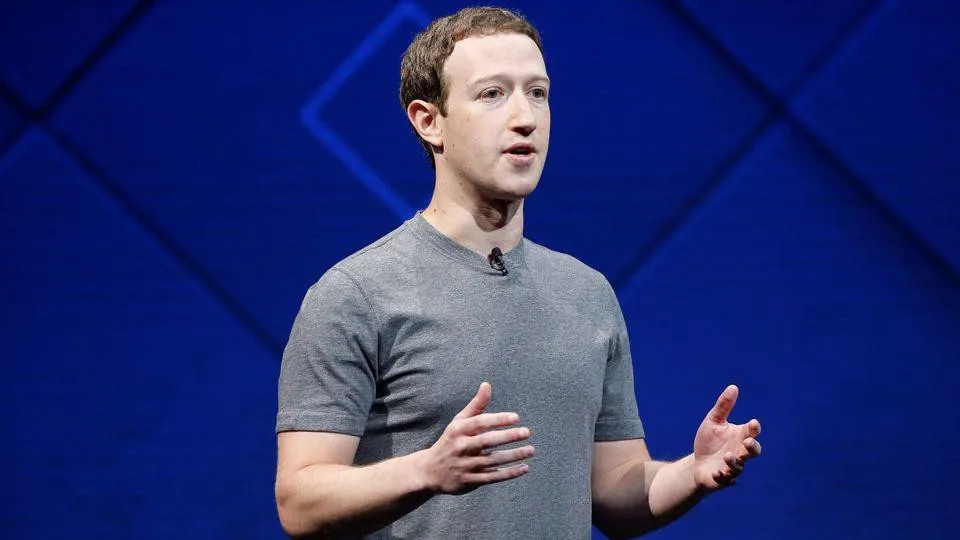

Mark Zuckerberg and Kids’ Chatbots: What’s the Real Motive Behind This?
Mark Zuckerberg, the CEO of Meta, has once again found himself in the spotlight, this time over a project that’s raising eyebrows worldwide. Reports suggest that Meta is exploring AI-powered chatbots designed for children, sparking debates about the ethics, safety, and real intentions behind this move. The news comes at a time when artificial intelligence is rapidly evolving, and tech giants are racing to dominate this transformative space.
So, what’s behind Meta’s interest in chatbots for kids? Is this a genuine effort to create educational tools, or is it another strategy to strengthen user retention and brand loyalty from an early age? Let’s dive into the details, controversies, and potential implications of Mark Zuckerberg’s chatbot initiative for children.
Why Meta Is Betting on AI Chatbots for Kids
Meta’s official reasoning focuses on innovation and education. According to insiders, the company wants to create chatbots that can serve as digital companions, learning assistants, and safe conversation partners for young users. These bots could help kids practice language skills, learn new concepts, and even improve social interactions in a controlled environment.
From Meta’s perspective, this is a natural progression. The company has already invested heavily in AI-driven products, from virtual assistants to generative AI features across Facebook, Instagram, and WhatsApp. Expanding this ecosystem to include children’s AI companions aligns with its broader mission to integrate AI into everyday life.
But critics argue that the timing and strategy reveal something deeper—a push to secure future users for Meta platforms.

The Business Angle: Building Brand Loyalty Early
One major theory behind Meta’s move is brand loyalty. If children grow up using Meta-branded chatbots, they are more likely to remain within Meta’s ecosystem as adults. In a world where TikTok dominates Gen Z and younger audiences, Meta may see kids’ chatbots as a way to reclaim relevance among younger demographics.
Experts note that creating chatbots for children is not just about engagement—it’s about long-term market capture. By introducing AI companions early, Meta can shape how kids perceive technology and even influence their future social media habits.
However, this approach is controversial because it involves targeting minors, a group protected under strict privacy and advertising laws.
Privacy Concerns: Are Kids Safe in the Hands of AI?
The biggest criticism of Meta’s chatbot initiative revolves around privacy and data security. Children are highly vulnerable online, and their personal data must be safeguarded at all costs. If Meta collects conversational data from these chatbots, it raises critical questions:
-
What kind of data will Meta store?
-
How will the company ensure that this information is not used for advertising purposes?
-
Can parents fully control what the chatbot interacts with?
Meta claims that safety is a priority, promising strict child-protection protocols and parental oversight features. However, the company’s track record with privacy scandals—such as the Cambridge Analytica incident—makes critics skeptical.

Psychological Impact: Can Chatbots Replace Real Human Interaction?
Another hotly debated issue is the psychological effect of children interacting with AI instead of humans. Some experts warn that over-reliance on AI companions could hinder social development, making it harder for kids to build genuine human relationships.
Dr. Emily Carter, a child psychologist, explains:
“While chatbots can be helpful learning tools, they should never replace authentic human interaction. Children need emotional feedback from real people to develop empathy, communication skills, and emotional intelligence.”
This concern is valid, especially as children already spend significant time on screens. Introducing personalized AI friends could further blur the line between technology and reality.
What Makes Meta’s Kids’ Chatbots Different?
Unlike traditional chatbots, Meta’s project reportedly focuses on advanced personalization and interactivity. The bots might be able to:
-
Recognize a child’s learning pace and adjust conversations accordingly.
-
Offer educational games and creative tasks, making learning fun.
-
Provide safe, moderated responses designed to prevent exposure to harmful content.
Meta also hints at integrating these bots with augmented reality and virtual reality experiences in the future, especially through its Metaverse platform. This means kids could one day interact with 3D AI avatars in immersive digital worlds—a concept both fascinating and concerning for many parents.
The Competition: Meta vs. Other AI Giants
Meta is not alone in exploring AI for kids. Companies like Google and Amazon have already experimented with child-friendly AI features. For example, Amazon’s Alexa for Kids includes parental controls and educational content. Google offers AI-based learning tools through its educational programs.
However, Meta’s aggressive push into the Metaverse and social AI gives it a unique angle—and perhaps a bigger risk factor. If Meta successfully integrates chatbots into social platforms, the potential for addiction and over-dependence could skyrocket.
Critics Speak Out: Is This Ethical?
Critics argue that targeting children with AI products crosses an ethical line. They question whether Meta’s true motive is education or monetization through long-term engagement. Child advocacy groups have demanded greater transparency and regulatory oversight before Meta rolls out these bots.
Some lawmakers are also calling for stricter rules to prevent tech companies from exploiting minors. With data privacy laws like COPPA (Children’s Online Privacy Protection Act) already in place, Meta will need to tread carefully to avoid legal battles.
Parents’ Perspective: Excited or Concerned?
Parents are divided on the issue. Some see potential benefits, such as enhanced learning tools and safe online companionship. Others worry about screen addiction, data tracking, and the lack of real-world interaction.
A recent online poll revealed that 68% of parents would not allow their kids to use AI chatbots without strict controls, while only 15% said they were fully comfortable with the idea.
The Real Motive: Innovation or Engagement Trap?
When analyzing Meta’s history, one thing is clear: the company thrives on user engagement. From Facebook’s early days to Instagram’s algorithm-driven feed, Meta has always prioritized keeping users hooked. Experts argue that kids’ chatbots fit the same model—a strategy to capture young audiences and keep them within the Meta ecosystem for decades.
While Meta insists its intentions are educational, the long-term business implications are undeniable. The more time children spend with these bots, the more likely they are to become lifelong users of Meta products.
Future Implications: What Happens If This Becomes Normal?
If Meta’s kids’ chatbots succeed, it could set a precedent for the entire tech industry. Other companies may follow suit, leading to a future where AI companions become a standard part of childhood.
Potential outcomes include:
-
Positive: Improved learning experiences, enhanced language skills, and personalized education.
-
Negative: Increased screen time, dependency on AI for emotional support, and further erosion of privacy.
The question society must answer is: Do we want a future where children grow up with AI best friends instead of real human bonds?
Final Thoughts
Mark Zuckerberg’s push for kids’ chatbots is one of the most controversial tech developments in recent years. While Meta promises innovation and educational value, the underlying concerns about privacy, ethics, and social impact cannot be ignored.
This move could revolutionize how children learn and interact with technology—or it could open the door to a generation overly reliant on AI, raising questions about what it means to be human in an age dominated by machines.
As governments, parents, and advocacy groups demand answers, one thing is certain: the debate over kids and AI is just beginning, and Mark Zuckerberg is right at the center of it.


















